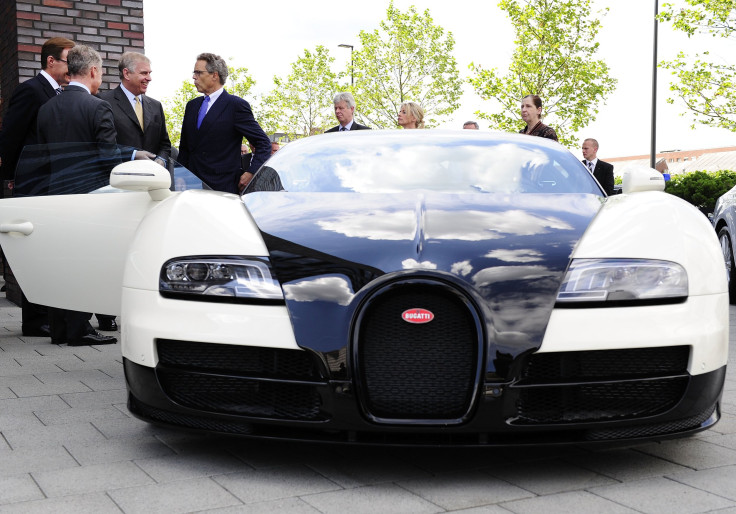Bugatti Veyron Hybrid Will Reportedly Join Club Of Hybrid High-Performance Sports Cars Like Porsche 918 Spyder, McLaren P1

Hybrid cars were once the purvey of consumers more interested in reducing their carbon footprints than going 0-60 in under three seconds, but as the technology advances, the makers of high-performance sports cars have begun to embrace it.
The most recent foray into adopting electric-motor assist in sports cars may be coming from French automaker Bugatti Automobiles SAS, which is reportedly planning a hybrid successor to its $1.7 million 16-cylinder midengine all-wheel drive Veyron.
Sources at Volkswagen AG (FRA:VOW), which bought the Bugatti trademark in 1998 and revived the brand that went defunct in 1963, told Reuters that the hybrid successor would, like the Veyron, be limited to about 450 cars.
Improved fuel economy is hardly the main objective in high-end racers that typically get less than 10 miles per gallon. (At high speed, the gasoline-powered Veyron’s fuel consumption reaches a cringe-worthy 3 miles per gallon.)
The main reason for adopting electric assist in these vehicles is the improved torque electric motors provide as the car accelerates.
If the report is accurate, the next Bugatti will join the likes of high-end hybrids such as the Porsche 918 Spyder, the LaFerrari and the McLaren P1.
High-performance hybrids might not have the same green credibility as a boring old Toyota Prius, but automakers are betting drivers will enjoy that electric torque.
© Copyright IBTimes 2024. All rights reserved.






















